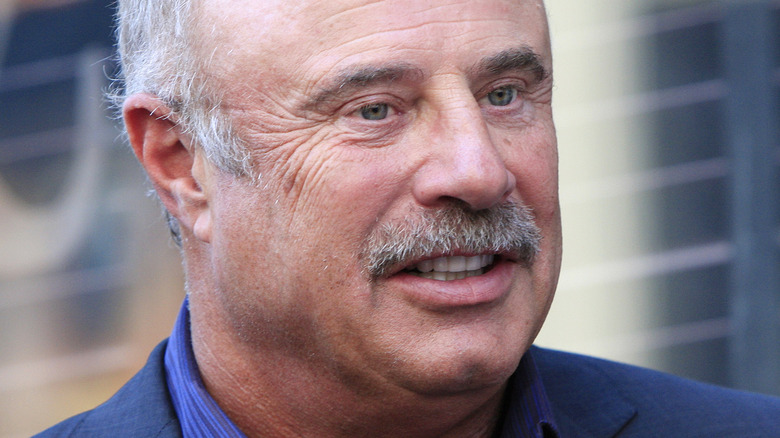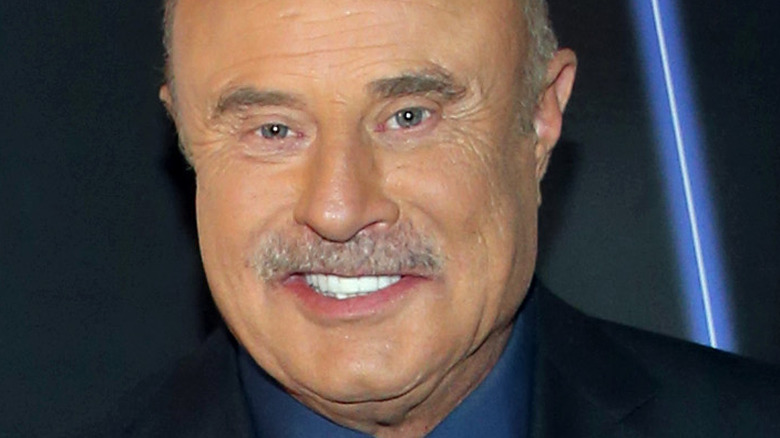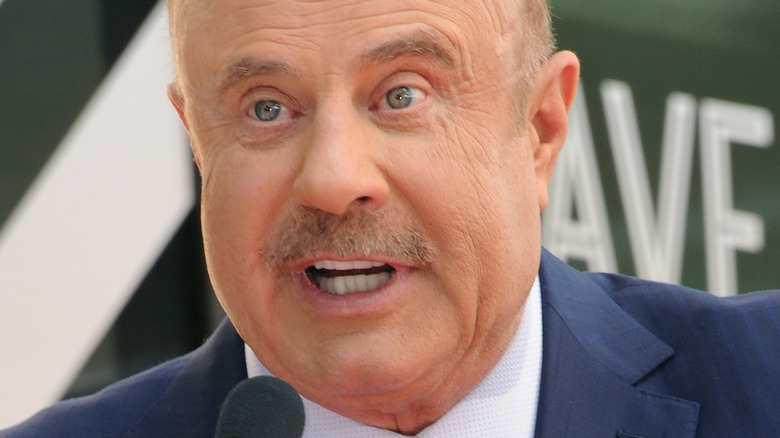How Dr. Phil Got Involved In The Natalee Holloway Case
Dr. Phil McGraw, the television personality best known to audiences by the mononym "Dr. Phil," has historically been known to run, not walk, into any given controversial situation. Aside from the bevy of guests on his eponymous show who have repeatedly claimed the on-air doctor is a life-ruiner, a number of missteps McGraw has made over the years have put him in the center of multiple lawsuits.
Among those include a 2004 class-action lawsuit involving a diet pill line (though he admitted no wrongdoing, McGraw settled for a cool $10 million); a legal fracas over McGraw's dog, who bit a former regular guest expert on the show; to a suit involving allegations of sexual assault, per Daily Beast. While the details of those suits could fill books in their own right, there's yet another one that in many ways overshadows them, both because of it's inherently heavy subject matter and the longstanding repercussions felt by those at the center of it.
The suit in question is related to none other than the 2005 disappearance of Natalee Holloway, an 18-year-old American who disappeared during a trip to Aruba with school friends, only days before she was due to graduate high school. Though her body has never been found, Holloway is presumed to have died, though the potential cause of death has not been able to be proven. So, how did Dr. Phil become involved in a lawsuit related to the tragedy?
Dr. Phil's lawsuit began because of a major misstep
According to Daily Beast, the case involving the lawsuit against Dr. Phil McGraw began in 2005, after the talk show host aired a segment about Natalee Holloway's disappearance — and, more specifically, about two persons of interest who allegedly had knowledge of the events at hand. Two Surinamese brothers, Deepak Kalpoe and Satish Kalpoe, along with their friend, a Dutch national named Joran Van der Sloot, are thought to have been the last people to have any known contact with Holloway at an Aruban bar. She supposedly left with all three to go to another drinking hole.
The Kalpoes and Van Der Sloot were later arrested on suspicion of murder, though they were eventually released by Aruban authorities. (All three were re-arrested multiple times, followed by releases, over the next two years. The Kalpoes were never ultimately indicted for any charges, though Van der Sloot, who was later convicted of murdering university student Stephany Flores Ramirez, is still considered the case's prime suspect.)
Enter McGraw, who featured a recording of what many surmised to be a bona fide confession made by the Kalpoes during a 2006 taping of "Dr. Phil." The footage, which featured audio of a conversation between Deepak and a private investigator hired by the show, reportedly "altered portions" of the recording, as People reported. So in response, the Kalpoe brothers decided to take McGraw to court.
The Kalpoes sued Dr. Phil for defamation and emotional distress
In their 2008 coverage of the lawsuit, People reported Deepak and Satish Kalpoe went after Dr. Phil McGraw for his perceived agenda, per a motion filed by their legal team: "[to] create false, incriminating, and defamatory statements that the plaintiffs engaged in criminal activity against Natalee Holloway." The brothers claimed that the airing of the edited tape on Dr. Phil's show wholly upended their lives — or, as People put it, resulted in "defamation, invasion of privacy," and "emotional distress." They also accused Dr. Phil of essentially fraudulent behavior, all in order to bank on the sensationalism of the Natalee Holloway case for good ratings.
Though McGraw, along with what was then called the CBS Television network as a co-respondent, attempted to put a kibosh on the lawsuit, their battles in and out of the courtroom stretched on for years. Roughly seven years after the lawsuit was first filed in 2006, a California judge ruled that McGraw would not have to fork over any payment for damages to the Kalpoes over what seemed like a technicality. The gist? That the brothers did not request the show or network issue a correction before filing their suit, per HuffPost, as is legally customary in California, the state where the suit was filed. The suit was later dismissed in 2015.



